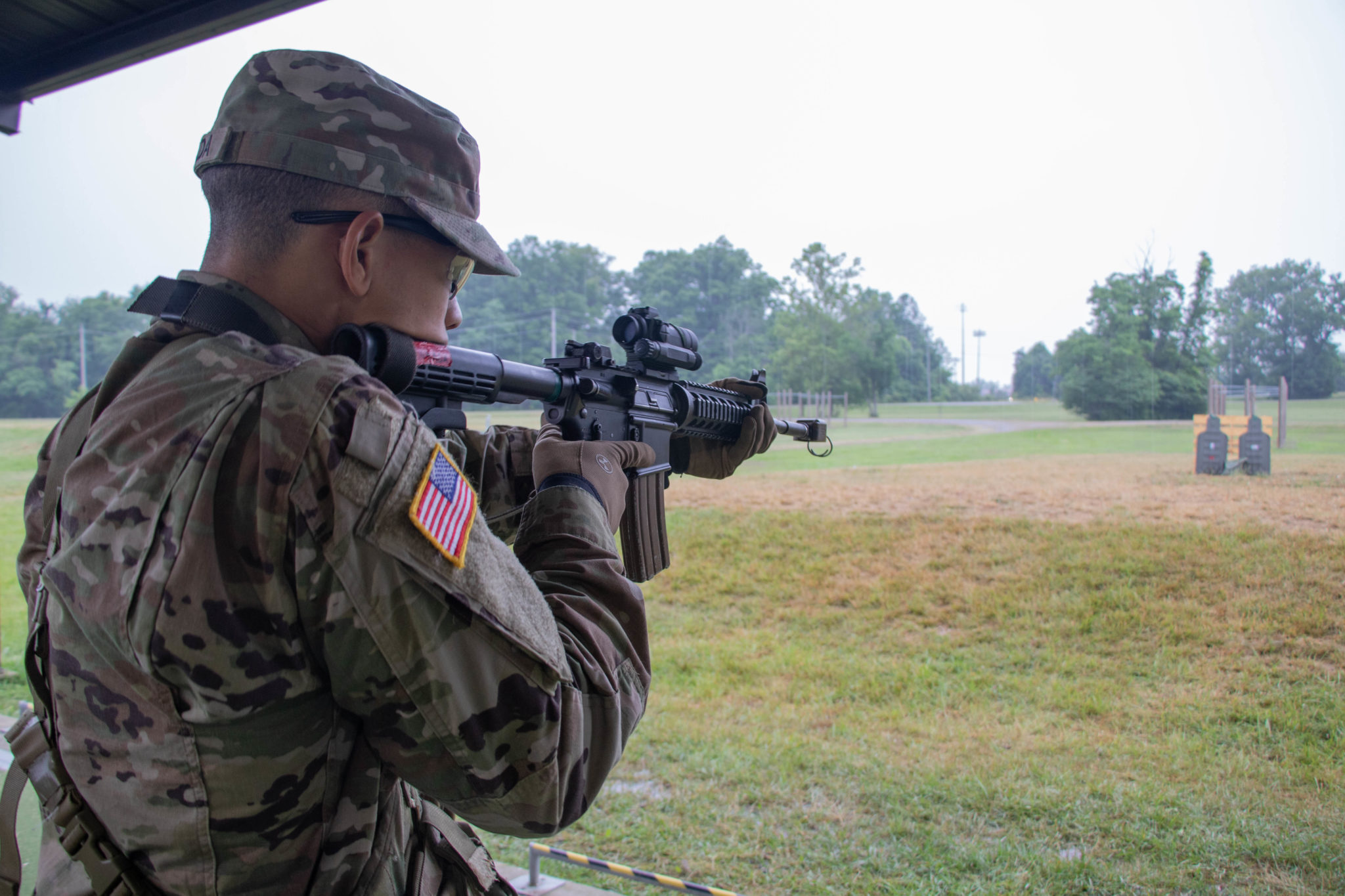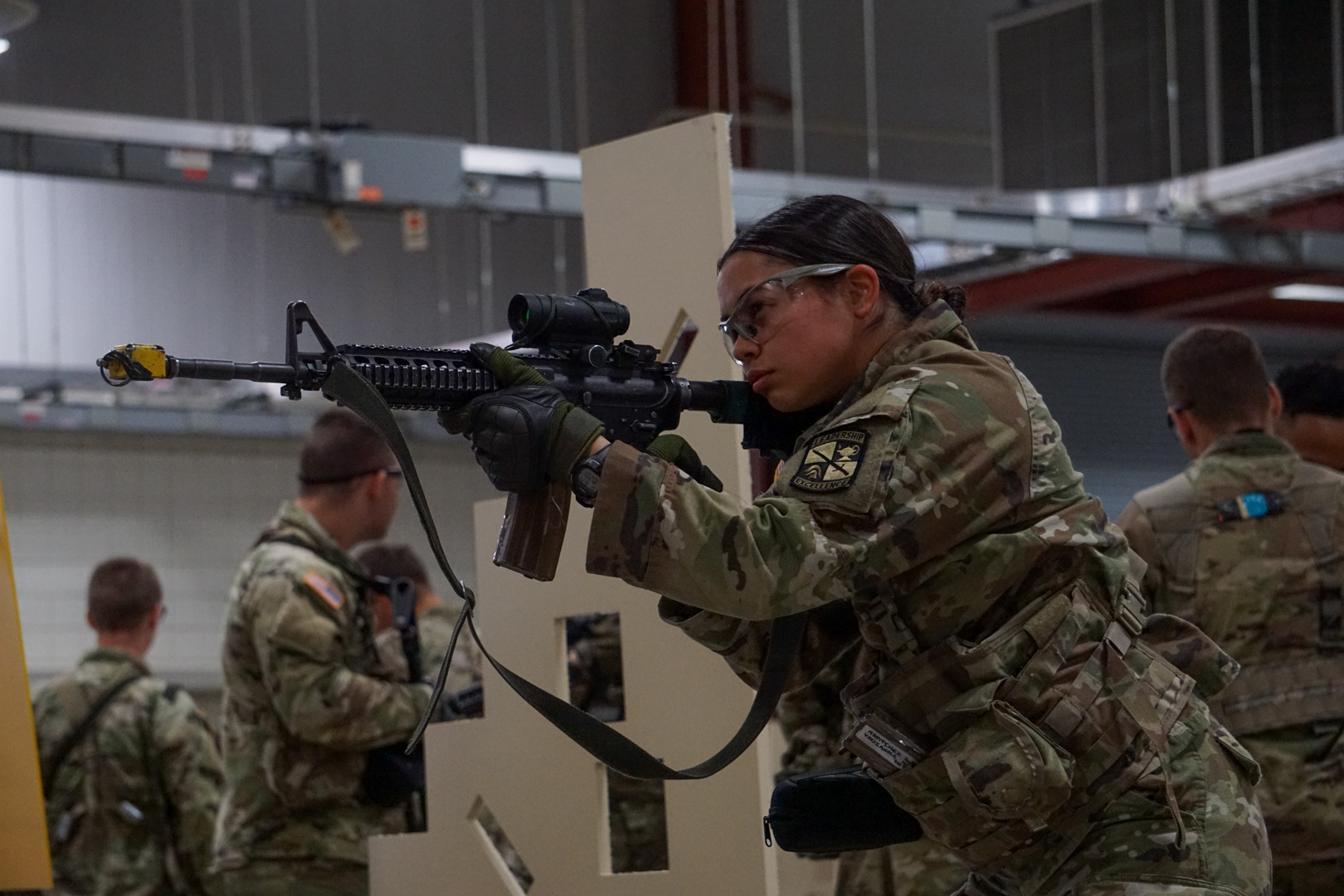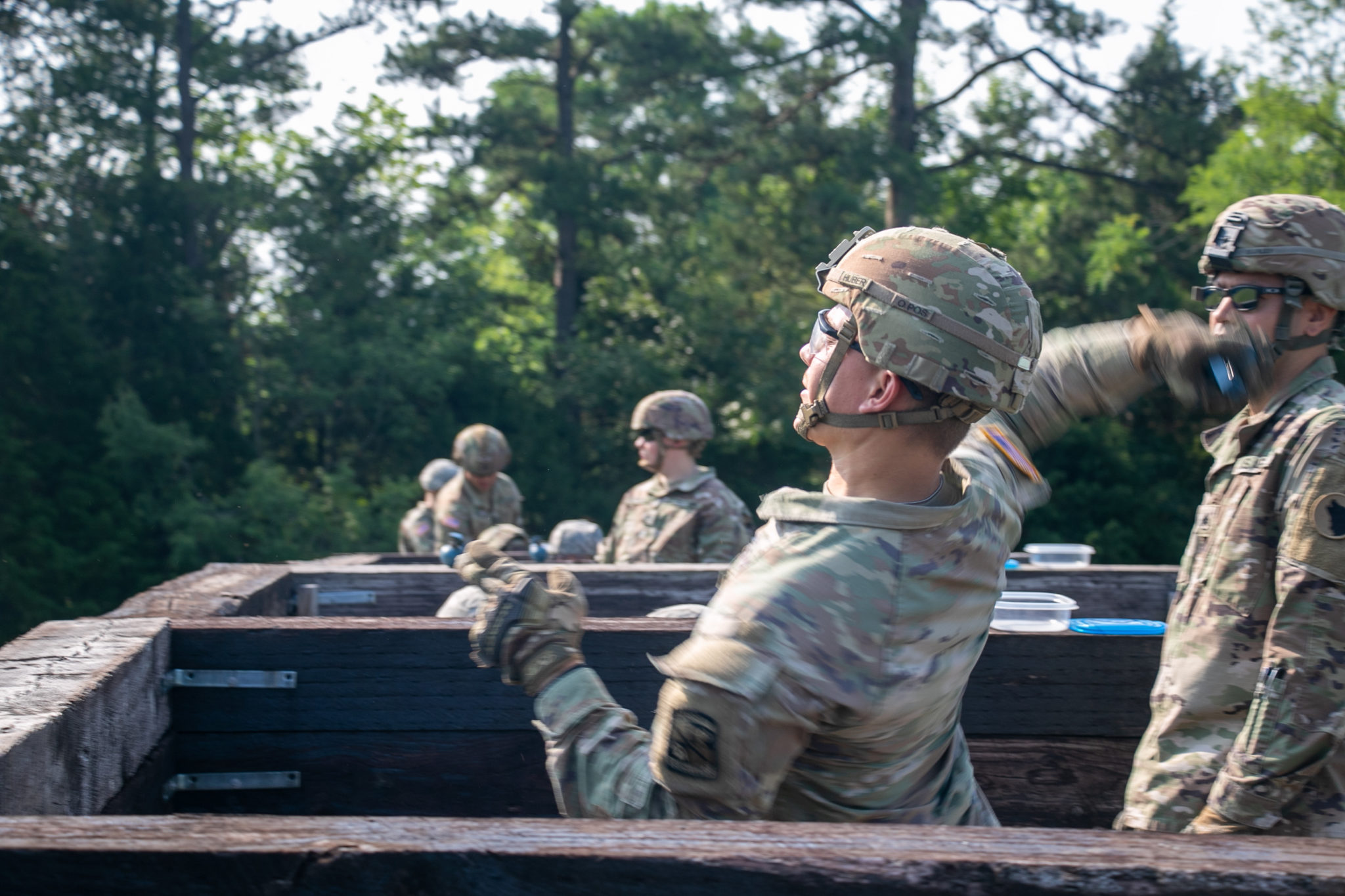Fort Knox, Ky.,—First Regiment Advanced Camp Cadets develop their leadership skills through team building challenges at the Field Leadership Reaction Course (FLRC).
Alpha and Bravo Company tackled physical and mental challenges while incorporating communication and improvisation skills to overcome various obstacles.

During Field Leadership Reaction Course training, teamwork is an unquestionable part of making it through the different obstacles at Fort Knox, Ky. (Photo by Savoury Jacobson.)
Sgt. Percell Jackson, stationed at Fort Knox, is an instructor at the FLRC for CST.
“This training is a building block and stepping stone. The Cadets do not know each other, they may have seen each other around, but when we put them together they get to learn about the different leadership skills and build on it,” said Jackson. “They can begin learning where someone is weak or strong, and then they can put that knowledge together to build an overall better team.”
Jackson says the course not only builds leadership skills, but also teamwork as well.
“The course builds confidence and teamwork, and they learn how to take responsibility in leadership roles and how to follow and take instructions,” said Jackson. “It’s also more than just that, it’s about learning how to work as a team and build confidence, being able to say this is or is not working, so they can try something different.”
Communication is also a component at the FLRC challenges.
“Everyone’s input counts and matters, so when they take it and get together, they can accomplish the mission and negotiate obstacles,” said Jackson.
Cadet Kristin Erickson, student at Dickinson College, native of Alexandria, Virginia, served in a leadership position for part of the training at FLRC course.

A Cadet attempts to cross a simulated stream to safety where his teammates are waiting for him at Fort Knox, Ky, on May 28th. (Photo by Savoury Jacobson.)
“I think this training personally helped me as leader,” said Erickson. “This is the beginning of camp and everyone needs that little bit of extra confidence to start off, and I think with having my squad there to help me and going through the lanes, I feel like I’m better prepared for the rest of training.”
Erickson also attributes team input to success in completing the different teamwork challenges.
“Not only myself, but the team leaders and the squad provided input which was what made us successful. Sometimes we had to take a step back and really think through what was going on. These exercises simulate mission-type scenarios where we don’t have all the answers right in front us, but we have to work as team to get them,” said Erickson.
Erickson looks to her family as inspiration as she builds her own leadership abilities.
“If I had to pick one or two people I look up to as leaders, I would have to pick both of my parents. They were both in the Army as officers, and I think I would like to try and match what they do,” said Erickson.
Cadet Jackson Goddard, student at University of Massachusetts Boston, native of Braintree Massachusetts, also served in a leadership role during a specific FLRC lane.
“The point of this training is to build teamwork and trust between members of the platoon, so that when we get out into the field we will have a better sense of unit cohesion,” said Goddard.
Goddard also says that the FLRC contributes to building trust amongst the Cadets.

A Cadet uses rope and teammates to successfully make it though Field Leadership Reaction Course training at Fort Knox, Ky. (Photo by Savoury Jacobson.)
“I think this training helps because it makes you think and it also makes you place trust in the people you are working with,” said Goddard. “I think this is a great event and we have been having a great time.”
Goddard finds outside inspiration when honing his leadership during training.
“I’m modeling my leadership skills after Major Murphy, who is a member of the Cadre where my host school is. He is just a really good leader, he cares about the people below him and it’s something I look towards, to try and be a leader like him.”
The FLRC is comprised of physical and mental challenges that build the steppingstones of leadership and teamwork skills that will continue to grow throughout CST.




